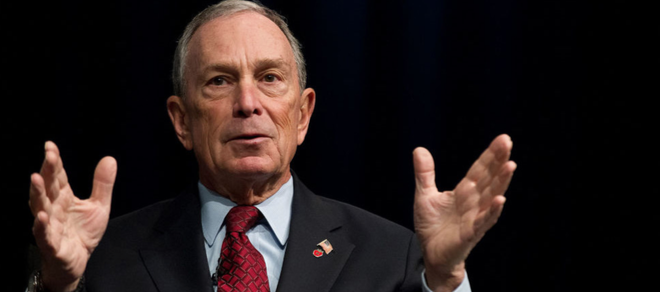This past week, Michael Bloomberg, former Mayor of New York City, wrote a piece in The Bloomberg View stating that he would not be running for President as an independent because he feared that his candidacy would make a Donald Trump or Ted Cruz victory more likely. This election cycle, it seems likely that either front runner Trump or runner-up Cruz will be the Republican nominee in the general election. If he were to run as an independent in the general election, Bloomberg would only be appealing to moderate and right leaning democrats, leaving the angry far right and left untouched and making it easier for Trump or Cruz to get elected. The question that everyone seems to be asking is whether he made the right decision in not running. Would it have really made a difference? If anything, it would have just made the political climate even more divided.
This election cycle, candidates on both sides of the political spectrum have rightfully called out flaws in our political system. These critiques need to be said, and the conversation must be had. However, the angry voices on both the right and left are not open to compromise, as Bloomberg has noticed. If he were to run, there would not be any drastic change in the political system. It would just pull some swing voters away from a democrat like Hillary Clinton if she were to win the nomination.
The right is going to stay put with Trump or Cruz. This could lead to the possibility of Congress picking the candidate in the event that neither would have enough electoral delegates. If this were to happen, Bloomberg would definitely not be elected, and neither would Hillary Clinton or Bernie Sanders. Most likely, the Republican House would pick the Republican nominee. As Bloomberg states, “That is a risk I cannot take in good conscience.
Bloomberg’s decision seems to be the correct one in this instance because his run would only further divide voters. It has become evident that there are ideological divisions in both parties. Most notably, the Republican party has been experiencing a seemingly irreconcilable schism between far right Tea Partiers and moderate voters. The Democrats are experiencing a generational divide between Clinton and Sanders supporters, which seems to be growing as the primary season continues. Bloomberg would not fit into any of these categories, and his campaign would likely be ineffectual.
Instead of running for President, Bloomberg decided to use his platform in politics to point out the flaws of the Republican front-runners’ positions. He spends a majority of his written piece condemning Trump and Cruz for their harsh anti-immigration policies, bigotry and racism.
He urges the public to make an informed decision about their candidate by “urging all voters to reject divisive appeals and demanding that candidates offer intelligent, specific, and realistic ideas for bridging divides solving problems, and giving us the honest capable government we deserve.”
Bloomberg, like many others in public life, does not think that running for President at this time is going to drastically change the general election for the better. For example, former candidate Mitt Romney was also asked about a potential bid, and he explicitly stated he would not be running.
Like Bloomberg, he has been very vocal in denouncing the Republican front runners. On the other side of the aisle, personalities such as John Oliver are also making appeals to the public to not vote for the Republican front- runners. Although we are not united in policy, a majority of leaders agree we cannot let President Trump or Cruz become a reality.




